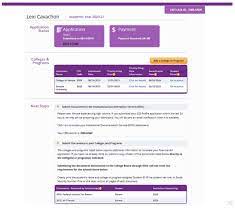The Comprehensive Guide to FAFSA
Imagine a treasure map that leads you to a vault filled with the resources to fund your college dreams. Now, replace that map with FAFSA—the Free Application for Federal Student Aid—and you've discovered the secret to unlocking the financial aid you need to pursue higher education. In this blog post, we will embark on a journey to demystify FAFSA, guiding you through its intricacies and equipping you with the knowledge to navigate this crucial step in the college application process. Get ready to uncover the riches of financial aid and pave your path to success.
FAQ: What is FAFSA, and why is it important?
Q: What is FAFSA? A: FAFSA stands for the Free Application for Federal Student Aid. It is a form that students and their families must complete to determine their eligibility for federal financial aid programs, such as grants, work-study opportunities, and loans. FAFSA is also used by colleges and universities to determine eligibility for their own institutional aid programs.
Understanding FAFSA for College Applications:
-
Gather the Necessary Documents: Before diving into the FAFSA application, gather the required documents and information. These may include your Social Security number, driver's license, tax returns (yours and your parents' if you are a dependent), W-2 forms, bank statements, and records of any untaxed income. Having these documents ready will streamline the application process.
-
Create Your FSA ID: To complete the FAFSA, you and your parent (if applicable) need to create a Federal Student Aid (FSA) ID. This serves as your electronic signature and allows you to access and update your FAFSA information.
List: Essential Steps to Navigate FAFSA:
-
Know the FAFSA Deadlines: FAFSA deadlines vary depending on the state and the colleges you're applying to. It's crucial to be aware of both the federal and state deadlines to ensure your application is submitted on time. Submitting your FAFSA early can maximize your eligibility for certain types of aid.
-
Provide Accurate and Honest Information: When completing the FAFSA, provide accurate and honest information. Falsifying information can lead to severe consequences and may jeopardize your eligibility for financial aid. If you're unsure about specific questions, seek guidance from a financial aid counselor or reference the FAFSA website.
-
Utilize the IRS Data Retrieval Tool: The IRS Data Retrieval Tool allows you to import your tax information directly from the IRS into your FAFSA. It simplifies the process and reduces the chances of errors. If eligible, take advantage of this tool to streamline the application process.
-
Maximize Your Aid Potential: FAFSA considers various factors, including family income, household size, number of family members in college, and assets. Understand how these factors impact your eligibility for need-based aid and strategically plan your finances to maximize your aid potential.
Question for the Reader: What concerns or questions do you have about completing the FAFSA? Share your thoughts in the comments below, and let's support each other in our journey toward securing financial aid for college!
Conclusion: FAFSA is the gateway to accessing federal and institutional financial aid for college. By understanding the process, gathering the necessary documents, and submitting your application on time, you can open the doors to funding your education and pursuing your academic goals. Remember, FAFSA is not just a form; it's a powerful tool that can shape your future.
So, embrace the journey, conquer the FAFSA, and set your sights on the brighter tomorrow that awaits you.

 By
By


